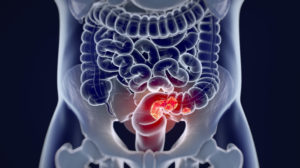The ketogenic diet, which primarily consists of high-fats, moderate-proteins, and very low-carbohydrates intake, was first used in 1921 as a therapeutic diet for pediatric epilepsy.
In various studies, the ketogenic diet has shown promising results in various neurological disorders, such as dementia, ALS, traumatic brain injury, and acne, cancers, and metabolic disorders.
Recently, the ketogenic diet has been used as an approach to weight loss.
The human body has developed a variety of mechanisms for adapting to changes in the environment, particularly changes in food availability and nutrient stress. In the event of carbohydrate deficiency, as in the keto diet consisting of 20 to 50 g of carbohydrates per day, insulin secretion is significantly reduced, and the body enters a catabolic state. When this occurs, gluconeogenesis and ketogenesis come into action.
In gluconeogenesis, endogenous production of glucose in the body occurs in the liver. When glucose availability drops, further ketogenesis begins to provide an alternate source of energy in the form of ketone bodies.
Ketone bodies, or ketones, are chemicals the liver produces when it breaks down fats. Ketone bodies replace glucose as a primary energy source during fasting, long periods of exercise, or when you don’t have as many carbohydrates.
One of the significant ketone bodies, β-hydroxybutyrate (BHB), has cellular signaling functions that broadly link the outside environment to epigenetic gene regulation and cellular function.
BHB is also a direct epigenetic regulator by binding to histones. Histones are proteins that play a significant role in gene regulation and DNA packaging into the cell and chromosomes and chromatin.
Histone acetylation is a well-understood mechanism for both broad and specific regulation of gene expression, and BHB can alter histone acetylation by directly inhibiting HDAC enzymes and indirectly promoting acetyltransferase activity via acetyl-CoA flux.
Read the original publication of this study here: [ Short-term and long-term ketogenic diet therapy and the addition of exercise have differential impacts on metabolic gene expression in the mouse energy-consuming organs heart and skeletal muscle ]
Learn how periods of ketogenic diet and exercise can modify your metabolic gene expressions.

Short-term and long-term ketogenic diet therapy and the addition of exercise have differential impacts on metabolic gene expression in the mouse energy-consuming organs, heart, and skeletal muscle.
Although a ketogenic diet (KD) is used to treat various metabolic diseases, the organ-specific metabolic changes that occur in response to the duration of KD remain unclear.
It was hypothesized that periods of KD consumption and regular exercise affect metabolic fuel selection at gene levels in the heart and skeletal muscle.
This hypothesis was tested in a study conducted on six-week-old male mice. The mice were divided into two groups, one fed a standard diet, and the other fed a KD. To determine the effect of KD based on the duration, the mice maintained KD for either 4 weeks (short term) or 12 weeks (long term), which was further split into exercisers and nonexercisers. The exerciser group in the long-term subcategory underwent physical activities five days a week in the course of the experiment.
During the first few weeks, the KD groups have shown a significant drop in body weight. Additional observations include a rise in plasma ketone levels and a decline in muscle glycogen levels. However, these changes were less drastic in the exerciser group in KD.
KD also resulted in the decreased expression of genes related to glucose utilization in heart and skeletal muscle, but this change did not occur in KD consumption plus exercise group.
The periods of KD intake also showed a significant difference in gene expression related to lipid utilization. Regardless of exercise, the long-term KD consumption increased lipid metabolism, but not in short-term KD. The KD groups exhibited a rise in gene expression related to ketogenesis and suppressed expression of ketolysis genes.
Environmental factors such as nutrition and behavior are known to be associated with epigenetic modifications, subsequently altering gene expression and having an impact on overall health. These results suggest that a ketogenic diet in short-term and long-term feeding has differential impacts on metabolism at gene expression levels in energy-consuming organs, the heart, and skeletal muscle.
Takeaways:
- Long-term ketogenic diet consumption increased lipid metabolism and rise in gene expression related to ketogenesis.
- A ketogenic diet may result in weight loss for a few weeks.
- The ketogenic diet resulted in a rise in plasma ketone levels and a decline in muscle glycogen levels. However, these changes were less apparent in the exerciser group.
- [ Short-term and long-term ketogenic diet therapy and the addition of exercise have differential impacts on metabolic gene expression in the mouse energy-consuming organs heart and skeletal muscle ]
- [ A high-fat, ketogenic diet induces a unique metabolic state in mice ]
- [ β-Hydroxybutyrate ]
- [ The Impact of Nutrition and Environmental Epigenetics on Human Health and Disease ]





